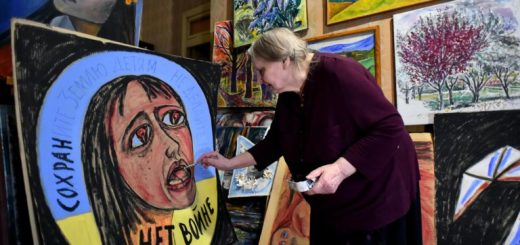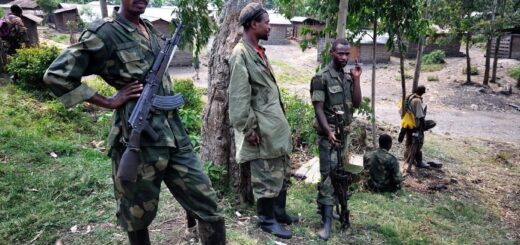Een ‘vergeten’ oorlog in Ethiopië blijkt wreder en dodelijker dan vele andere conflicten
Op 4 november is het precies twee jaar geleden dat de oorlog in Tigray, een regio in het noorden van Ethiopië, uitbrak. Wat begon als een intern machtsconflict in de complexe federale staatsstructuur van Ethiopië is ondertussen uitgegroeid tot een wrede oorlog die niemand spaart en waarbij alle betrokken partijen beschuldigd worden van oorlogsmisdaden en misdaden tegen de menselijkheid. Ook het dictatoriale regime van buurland Eritrea is zich in het gewapend conflict gaan bemoeien, met massale mobilisaties en nog meer militarisering van de samenleving tot gevolg.
In tegenstelling tot de oorlog in Oekraïne weet de buitenwereld nauwelijks wat er zich écht afspeelt. Zowel de oorlogvoerende partijen in Addis Abeba als in Asmara doen er alles aan om buitenlandse waarnemers ver weg te houden van het front, alle berichten passeren de censuur en reizen naar het conflictgebied is voor onafhankelijke waarnemers en journalisten zo goed als onmogelijk. De perfecte setting om ongestoord wreedheden te begaan, blijkt nu.
Volgens doorgaans goed geïnformeerde berichtgeving op de BBC en in The Guardian zou de oorlog in Ethiopië al meer dodelijke slachtoffers hebben geëist dan de oorlog in Oekraïne, maar kijkt de buitenwereld er niet meer naar om.
In een recent redactioneel in The Guardian wordt verwezen naar een onderzoek van de UGent om een schatting te geven van het aantal slachtoffers: “Researchers at the University of Ghent have estimated that between 380,000 and 600,000 civilian lives alone have been lost, with 30,000-90,000 killed in direct attacks, but most dying for lack of food or healthcare”.
Miljoenen mensen hebben hun huizen en gronden moeten verlaten en zijn als ontheemden in eigen land op de dool of probeerden via de buurlanden elders een veiliger onderkomen te vinden. Slechts een kleine minderheid slaagde erin om Europa te bereiken en er asiel aan te vragen. Niemand weet hoeveel oorlogsvluchtelingen bij hun riskante poging om de oversteek te wagen, verdronken in de Middellandse Zee.
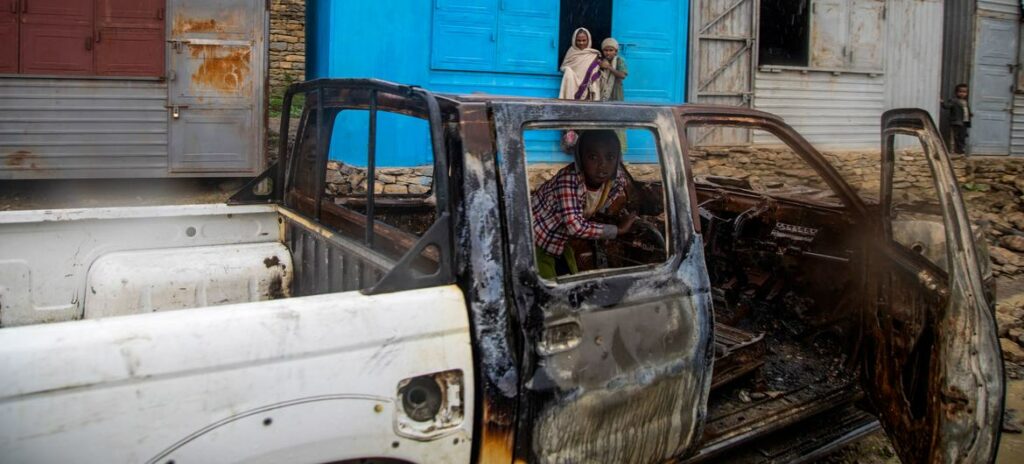
Als direct gevolg van de oorlog zouden de voorbije maanden al minstens 150.000 mensen van honger zijn omgekomen in de Hoorn van Afrika. Gerichte aanvallen tegen burgerdoelen en seksueel geweld zijn schering en inslag. Zeker sinds het conflict opnieuw in alle hevigheid opflakkerde in augustus 2022.
Sinds enkele dagen zouden er nieuwe pogingen ondernomen worden om tot vredesgesprekken te komen in Zuid-Afrika, echter zonder dat de bloedige gevechten op het terrein in Tigray tot een einde lijken te komen.
Martin Plaut, een Britse onafhankelijke journalist, en verbonden aan het Institute of Commonwealth Studies, die de Hoorn van Afrika al jarenlang volgt en vooral de situatie in Eritrea goed kent, gaat in een uitgebreid analysestuk (gepubliceerd op 21 oktober) dieper in op de zware verantwoordelijkheid van de Eritrese dictator Isaias Afwerki.
Plaut citeert ook professor Kjetil Tronvoll: “The world’s biggest ongoing armed conflict is not Russia’s attack on Ukraine, but Ethiopia and Eritrea’s massive offensives on Tigray. A reliable estimate is that up to one million troops are engaged in the war theatre. The ongoing combined Eritrea/Ethiopia offensives against Tigray use WW1 tactics of ordering massive human wave attacks on Tigray defence lines. The carnage is horrendous. Likely as many as 100,000 have been slaughtered over the last weeks.”
In een opiniestuk, dat in september verscheen op de website van Al Jazeera, schreef dr. Mehari Taddele Maru, een Ethiopische onderzoeker over vrede en veiligheid, dat “een fractie van de wereldwijde aandacht die naar de oorlog in Oekraïne gaat waarschijnlijk zou volstaan om het conflict te beëindigen”. Maar de wereld kijkt liever de andere kant op…
We nemen hieronder enkele lezenswaardige stukken over: een artikel dat op 12 oktober verscheen op de Afrika-nieuwspagina’s van de BBC, een redactioneel van The Guardian van 23 oktober, een call-to-action van de International Crisis Group van 20 oktober en een analysestuk van Martin Plaut, alsook enkele recente links naar nog meer achtergrondinformatie voor wie dit ‘vergeten’ conflict toch niet wil vergeten.
Jan Van Criekinge
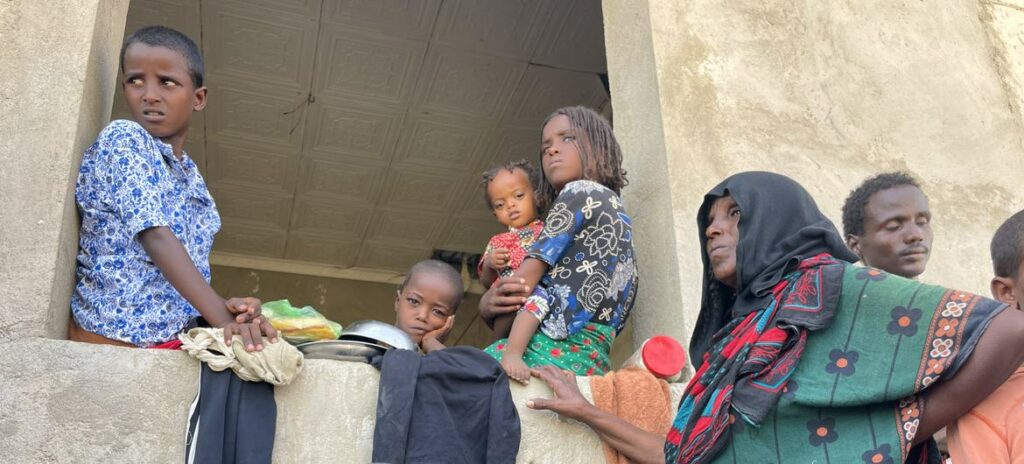
Eritreans hunted down as military call-up intensifies over Ethiopia’s Tigray war
Eritrean authorities have intensified military mobilisation and are hunting down draft dodgers across the country, as the war in neighbouring Ethiopia escalates, multiple Eritrean sources have told the BBC.
The latest round-ups are the worst so far as women have not been spared, with many elderly mothers and fathers detained in a bid to force their children, who have gone into hiding, to surrender, they say.
They spoke on condition of anonymity as Eritrea is a highly restrictive state that controls almost all aspects of people’s lives.
Eritrea has sent troops to help the Ethiopian government against forces from its northern Tigray region, which borders Eritrea.
“As many ignored the call-up, the round-up has been intensified,” a source said, adding that wives have also been detained after their husbands tried to avoid conscription.
Checkpoints have been set up along major roads, and widespread searches are taking pace in cities and villages.
In the capital, Asmara, round-ups are being carried out on the streets while in many rural areas, the authorities have sealed homes, confiscated cattle and harassed relatives if a wanted person is not found, the BBC has been told.
The BBC has contacted the Eritrean government for comment.
Last month, Information Minister Yemane Gebremeskel said that a “tiny number” of reservists had been called up, denying that the entire population had been mobilised.
The almost two-year-long war in Tigray and neighbouring regions has been described by some analysts as bloodier than the conflict in Ukraine. But there has been less media coverage of it as the Ethiopian and Eritrean governments have heavily restricted travel, and communication lines to Tigray have mostly been down.
The Tigrayan People’s Liberation Front (TPLF), which controls the region and is leading the fight against Ethiopia’s government, has also embarked on a mass mobilisation campaign to bolster its forces. This follows the collapse of a five-month-long truce in August and the failure of the African Union to get peace talks off the ground.
A source in Eritrea said the authorities were trying to “stir emotions” at public meetings, linking their military intervention to “the existence and sovereignty of the nation”, and saying that the TPLF “must be buried”.
The conflict has caused a massive humanitarian crisis in Tigray
Last month, Eritrea recalled reservists under the age of 55 and some were sent to the frontlines.
In the last few days, fighting has been reported in many border areas, including Adigrat, Rama, Shiraro and Zalambesa.
But many Eritreans have resisted the latest call-up, saying they do not want to die in what they see as a needless war.
Elderly men have also “been forced to be on a war footing in many areas and in most cases, the operation of the conscription is being carried out arbitrarily”, one source said.
An Eritrean in the diaspora expressed concern about his brother and sister-in-law in Asmara.
He said his sister-in-law had fled with the couple’s children to her parent’s village, and he feared that his brother had been detained.
Authorities are also refusing to issue shopping coupons – used to buy basic commodities like sugar and oil at discounted prices – until families heed the call-up, sources added.
‘Hiding someone is treason’
“What they had been doing in the countryside, they have started in the capital, abusing families with the local administration coupons, licences and so on,” a source told the BBC.
Residents have been brought to the offices of local administrations, and warned that “hiding one’s children or husband, or cooperating in desertion is considered as treason”.
“They are putting a lot of stress on the people,” the source added.
One woman in Eritrea said that many people were frustrated and bitter as war has consumed the lives of generation after generation.
“People are expressing their opposition in various ways, but the security system is so merciless that it can commit any kind of atrocity against its people,” the woman added.
An Eritrean living in Europe said he feared for the safety of his family back home.
His 67-year-old father was a reservist who had been deployed in his area, though he has not yet been ordered to fight on the frontlines.
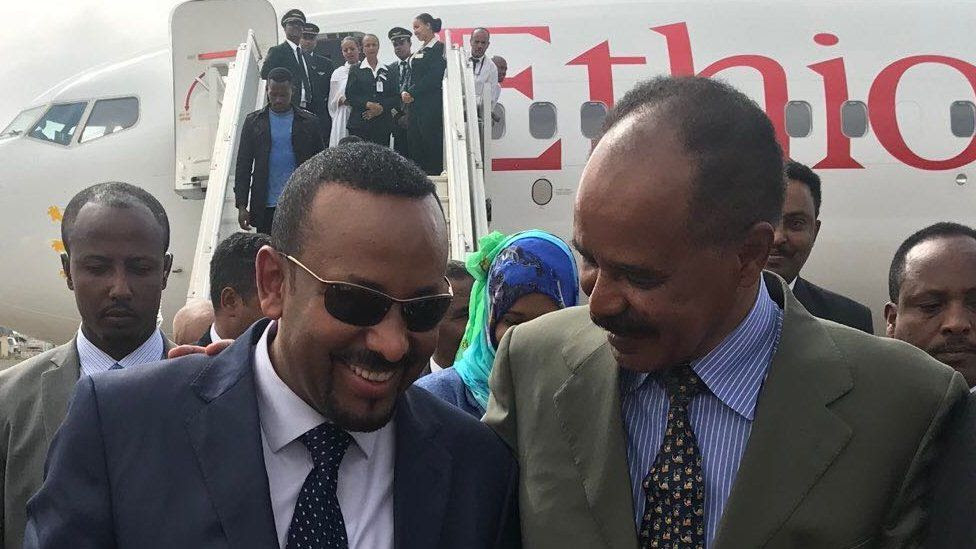
He was more worried about his 23-year-old sister, who, he said, had been detained at a military camp near the western city of Akurdet after being caught attempting to cross the border.
“It has been a while since the family heard from her. She is now missing,” the man said.
Sources said the authorities have been threatening to take detainees far away to areas with harsh conditions. The regime runs a network of secret detentions centres where people are held for many years without due process of law, human rights groups say.
The war in Tigray broke out in November 2020 following a massive fall-out between Ethiopia’s Prime Minister and Nobel Peace laureate Abiy Ahmed and the TPLF over a wide range of issues, including whether Ethiopia should retain an ethnically based federal system.
The conflict comes against the backdrop of long-standing hostility between the Eritrean regime and the TPLF, which dominated a coalition government in Ethiopia until Mr Abiy’s rise to power in 2018.
Under the TPLF, Ethiopia and Eritrea fought a border war which claimed the lives of about 80,000 people. An international tribunal later ruled that Ethiopia should hand over territory to Eritrea, but the TPLF-controlled government failed to do so.
Eritrea regained the territory soon after the current war started in November 2020.
In the 28 years since it gained independence from Ethiopia, Eritrea has fought wars with all of its neighbours – Yemen in 1995, Sudan in 1996, Ethiopia from 1998 to 2000 and Djibouti in 2008.
Mandatory military service was supposed to last for 18 months, but has become indefinite.
In the last two decades, tens of thousands of young Eritreans have left the country to escape the conscription, which includes forced labour.
“This situation has affected the children of my martyred brother whom I considered as my hope. They have joined the army. What can I say except to beg for God to protect all the young,” said an Eritrean woman exiled in Italy.
Teklemariam Bekit & Farouk Chothia
Dit artikel verscheen op 12 oktober op de nieuwswebsite van de BBC:
https://www.bbc.com/news/world-africa-63208353
The Guardian view on the world’s forgotten conflict: Ethiopia’s devastating war
The Guardian, Editorial, Sunday 23 October 2022
Civilians in Tigray are in grave danger following the collapse of the ceasefire. World leaders must turn their attention to this crisis.
Millions displaced. Brutal attacks on civilians. A soaring death toll. Deliberate attacks on infrastructure. And little hope of a negotiated exit. Ethiopia’s northern Tigray region is enduring probably the most brutal and deadly war being waged in the world today.
Tens of thousands of combat fatalities have reportedly followed the failure of a ceasefire in August. Yet the world is paying little heed.
Assessing the true toll is impossible given that most communications have been cut off. Researchers at the University of Ghent have estimated that between 380,000 and 600,000 civilian lives alone have been lost, with 30,000-90,000 killed in direct attacks, but most dying for lack of food or healthcare.
In a region already beset by hunger, but which had made some significant strides, food has become a weapon of war. Nearly half the population is in severe need of food aid. There is clear evidence of war crimes by all parties, including widespread sexual violence, although civilian casualties are believed to be overwhelmingly Tigrayan.
The conflict broke out in November 2020, following a political dispute in which the federal and regional Tigray governments declared each other illegitimate. The Ethiopian prime minister and Nobel peace prize winner Abiy Ahmed said he was launching a strike on the Tigray People’s Liberation Front (TPLF) because it had attacked an army base.
Eritrea joined his cause. Many fear that the TPLF could regain the political dominance it enjoyed for decades, while others accuse the prime minister of a power grab. The conflict has become messier, more fractured and more entrenched as it has gone on, with the neighbouring Amhara region also drawn in.
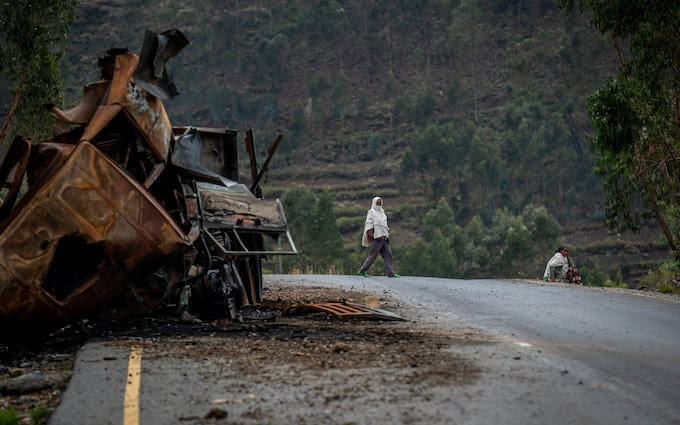
While some food aid finally arrived in Tigray this spring, Addis Ababa and its allies continued to block commercial traffic to the region, fuel shipments remained extremely limited, and electricity, telecommunications and banking services remained cut off. Now even the humanitarian operations are once again suspended.
The UN secretary general, António Guterres, has warned that the situation is spiralling out of control and there is no military solution. Yet Mr Abiy and his allies still appear bent on one.
Their current offensive is infantry-heavy, with poorly trained and equipped troops flung towards enemy lines, in addition to airstrikes. Eritrea has intensified mobilisation, reportedly detaining parents whose adult children try to avoid conscription.
Despite significant setbacks, many Tigrayans have come to see this as a fight for their very survival; giving up may look as dangerous as persisting. The International Crisis Group has warned of a serious risk of accelerating atrocities, especially given the surge in hate speech against Tigrayans. There are also concerns that the war could spill over given the poor relations and long-running border dispute between the federal government and Sudan.
The African Union, the obvious forum for pursuing a solution, has failed to make progress. While the US has invested effort in diplomacy, it has not always been consistent in following through.
The European Union has seemed largely uninterested, especially since Russia’s invasion of Ukraine. Though there is a good case for UN action, including an arms embargo, the path is strewn with obstacles.
Donors must make clear to Addis Ababa that anything more than humanitarian assistance cannot resume until it lifts the blockade and shows it is serious about pursuing peace. Tigray’s leaders must similarly demonstrate commitment to African Union talks scheduled for Monday.
The collapse of the truce is deeply alarming. But another halt to the disastrous conflict is possible. It will not happen without significant and sustained external pressure: that must be applied, and it must be done now.
A Call to Action: Averting Atrocities in Ethiopia’s Tigray War
A joint Ethiopian-Eritrean offensive has made significant gains in Tigray, marking yet another turn in Ethiopia’s brutal conflict. The risk of large-scale attacks on civilians is high. African and world leaders should take urgent action to prevent an even worse humanitarian catastrophe.
https://www.crisisgroup.org/africa/horn-africa/call-action-averting-atrocities-ethiopias-tigray-war
Tigray the latest battlefront in Afwerki’s three decades of wars
By Martin Plaut, Kenya Standard, 21 October 2022
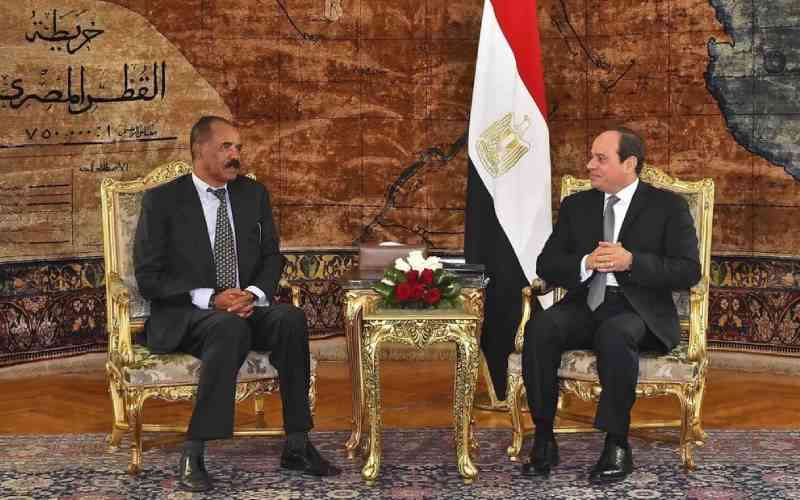
Getting news out of Eritrea is exceptionally difficult: it is – according to Reporters Without Borders – among the most difficult places in the world from which to report.
But in recent weeks news of the scale of the drive to recruit young (and not so young) men and women to be deployed in the war in the neighbouring Ethiopian region of Tigray has become apparent.
The BBC produced a well-researched article describing the burden this is placing on Eritrean families.
“Many in the capital, Asmara, were given notice on Thursday and moved to the border with Ethiopia’s Tigray region, within hours, sources told the BBC. Reservists up to the age of 55 have been called up, they said.” Families were in tears, as they send their relatives to a war in which, as the BBC explained “Hundreds of thousands have been killed.”
The scale of conscription was reported to the UN Human Rights Council on June 14 this year.
“Thousands of conscripts have been forced into the Tigray conflict, with men, women and children taken and sent to fight on the front lines,” said the Special Rapporteur on the situation of human rights in Eritrea, Mohamed Abdelsalam Babiker.
One of the few ways of extracting information from behind the iron walls erected by Eritrea’s only, unelected president, Isaias Afwerki, is by speaking to Eritreans whose relatives are in the country or have recently left.
This is what I have done in the past week and this is what they said. For obvious reasons, it is impossible to name my sources.
The overall sense is of a country numb with pain and fear. As one Eritrean returning from abroad said: “There is a palpable sense of tension. Several times people said: ‘you have come at a very bad time.’”
Anyone of conscription age – men up to 60 – are being picked up, but some women too. Even those who have not yet been called up are sent for training every day: “Two hours before their regular jobs. This is prior to deployment to the front. No one knows when or where they will be sent: the instruction is “be prepared.”
Visitors comment on how quiet the streets are, as families avoid their younger members being seen in public. It doesn’t always work. Eritrea’s notorious national security service goes door to door searching for anyone who has evaded the waves of conscription.
One Eritrean I spoke to described a man arriving home to find his wife being arrested because her son was in hiding, away from their home. The whole neighbourhood rallied around, begging the security services not to take her away. Eventually, they relented, but not before their son had emerged, and been marched off to fight. Conscripts can be forced to serve indefinitely.
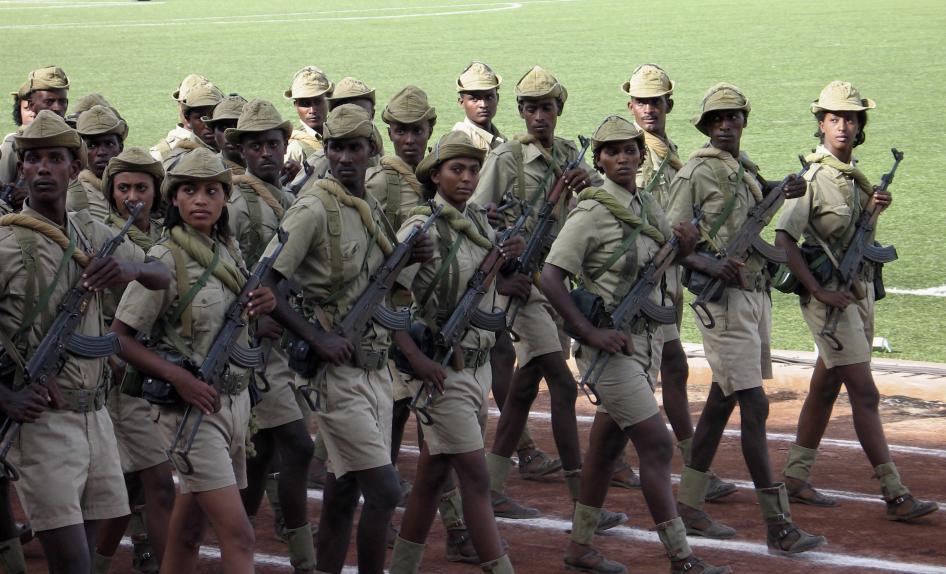
The current conflict in Tigray has only the latest war that President Isaias has involved his country in. Over time the population has become numb to the loss of its citizens to wars or indefinite “National Service,” as conscription is called.
Little of this is discussed in public. Eritreans have been living in a climate of fear for years, with neighbours spying on each other, and even members of their own families, as the UN Commission of Enquiry on Eritrea reported.
“Through its extensive spying and surveillance system targeting individuals within the country and in the diaspora, the Government engages in the systematic violation of the right to privacy…
As a result of this mass surveillance, Eritreans live in constant fear that their conduct is or may be monitored by security agents, and that information gathered may be used against them leading to arbitrary arrest, detention, torture, disappearance or death. They, therefore, engage in self-censorship with regard to most aspects of their lives.”
The sense of anxiety and distrust has left neighbours wary of sharing even the simplest information with each other since no one knows who might be a spy. One woman told me of her discussion with a friend. “We are sending our children to their death … they are not going to come back.’ Then she put a finger on her lips.”
In the capital, Asmara, hotels and restaurants are working at half their capacity, because their staff have been called up. Every business has been told to let staff go to the front, but no one can complain in public. “Just stay quiet”, people say, before glancing over their shoulders.
No one can be certain how many lives have been lost in the war against Tigray that erupted in November 2020. Professor Kjetil Tronvoll, one of the best-known Horn of Africa scholars, has worked on the region since the 1990’s.
In a series of Tweets he provided an assessment of the scale of the conflict.
“The world’s biggest ongoing armed conflict is not Russia’s attack on Ukraine, but Ethiopia and Eritrea’s massive offensives on Tigray. A reliable estimate is that up to one million troops are engaged in the war theatre. The ongoing combined Eritrea/Ethiopia offensives against Tigray use WW1 tactics of ordering massive human wave attacks on Tigray defence lines. The carnage is horrendous. Likely as many as 100,000 have been slaughtered over the last weeks.”
If this is remotely accurate, then the politics of the Horn of Africa will be shaped by this war for years to come. For President Isaias, this is probably his last throw of the dice. Now 76, he has attempted to use Eritrea as a platform from which to exert influence across the region since his troops captured the country from Ethiopia in 1991.
Martin Plaut
The writer, Martin Plaut, is a senior research fellow on the Horn of Africa at the Institute of Commonwealth Studies. https://eritreahub.org/tigray-the-latest-battlefront-in-afwerkis-three-decades-of-wars
How Ethiopia’s civil war in Tigray started
The civil war, which has devastated Ethiopia’s Tigray region, has seen tens of thousands killed and left its people largely cut off from aid and food supplies.
Some estimates say more than 150,000 people have died from starvation.
The UN has accused both sides of committing war crimes, including attacks on civilians and sexual violence
https://www.bbc.com/news/av/world-africa-63235964
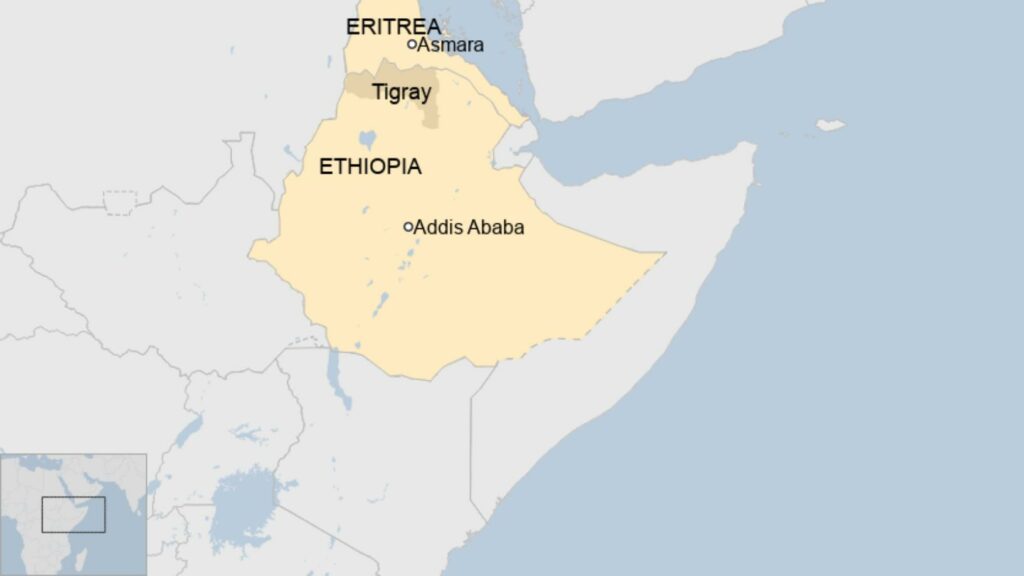
Ethiopia civil war: Why fighting has resumed in Tigray and Amhara https://www.bbc.com/news/world-africa-62717070
Eritrea’s mass mobilisation amid Ethiopia civil war https://www.bbc.com/news/world-africa-62927781
Eritrea starts big offensive in Ethiopia’s Tigray region – TPLF https://www.bbc.com/news/world-africa-62957817
Ethiopia’s Tigray conflict: Civilian bloodbath warning as offensive escalates https://www.bbc.com/news/world-africa-63275598
Ethiopia’s Tigray conflict: Nasa shows how a war zone faded from space https://www.bbc.com/news/world-africa-63315388
Ethiopia civil war: Warring sides begin peace talks https://www.bbc.com/news/world-africa-63384278
Adi Daero: Did air attacks hit civilian targets in Tigray? https://www.bbc.com/news/63146055
Ethiopia accused of human rights abuses and ethnic cleansing in Tigray – Major report from Human Rights Watch and Amnesty International documents horrifying cases of rape, torture and murder https://www.telegraph.co.uk/global-health/terror-and-security/ethiopia-accused-human-rights-abuses-ethnic-cleansing-tigray/
Ethiopia blocked famine declaration in Tigray, UN chief suggests – Mark Lowcock, former UN humanitarian chief, claims the system to declare famine is broken and was manipulated by Ethiopia in 2021 https://www.telegraph.co.uk/global-health/climate-and-people/ethiopia-blocked-famine-declaration-tigray-un-chief-suggests/
‘Narrow window to prevent genocide in Tigray’ warns WHO chief – Tedros Adhanom Ghebreyesus, who hails from the region, said the almost two-year conflict has ripped apart the social fabric
https://www.telegraph.co.uk/global-health/terror-and-security/narrow-window-prevent-genocide-tigray-warns-who-chief/
Eritrea viewpoint: I fought for independence but I’m still waiting for freedom https://www.bbc.com/news/world-africa-57187736
What Ethiopia and Tigray need for peace talks to succeed – An impartial mediator, political will and a fraction of the world’s attention that Ukraine has received would help (Opinion, Al Jazeera, 22 September 2022)
https://www.aljazeera.com/opinions/2022/9/22/what-ethiopia-and-tigray-need-for-peace-talks-to-succeed
Attack on Tigray Escalates Ethiopia’s War – The Ethiopian government’s recent military advances signal a worrying turn in a brutal war (19 October 2022)
https://foreignpolicy.com/2022/10/19/ethiopia-tigray-war-humanitarian-crisis-shire-famine-aid/
Ethiopia: Fears of fresh atrocities loom in Tigray as conflict intensifies (Amnesty International Report, 24 October 2022)
https://www.amnesty.org/en/latest/news/2022/10/ethiopia-fears-of-fresh-atrocities-loom-in-tigray-as-conflict-intensifies/
Ethiopia 2021 in World Report van Human Rights Watch
https://www.hrw.org/world-report/2022/country-chapters/ethiopia
Lees verder (inhoud oktober 2022


